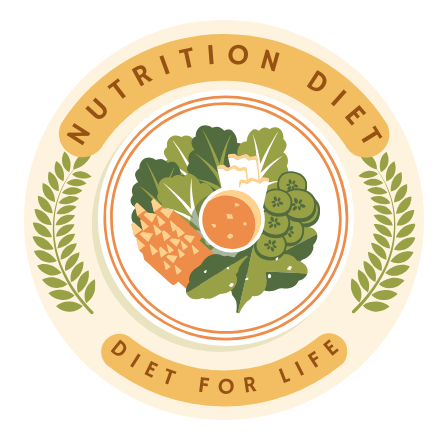Introduction
In recent years, gluten-free diets have surged in popularity, with individuals across the world cutting gluten from their lives for reasons ranging from health concerns to trendy lifestyle choices. Initially, gluten-free diets were closely associated with medical conditions like celiac disease and non-celiac gluten sensitivity (NCGS). However, today, they have become a global phenomenon, embraced by a wider audience, including those who do not suffer from any gluten-related medical conditions. Despite the prevalence of gluten-free options in supermarkets and restaurants, there is still much confusion surrounding the necessity of eliminating gluten from the diet, and whether it’s beneficial for everyone.
This article delves deep into the science of gluten, the medical conditions that require a gluten-free diet, and the reasons why some people opt for this dietary change even if they don’t have a specific health condition. We will explore the potential benefits of going gluten-free, who truly needs it, the risks and drawbacks, and the social and cultural factors influencing the growing trend. Additionally, we’ll examine the implications of a gluten-free diet from both a scientific and a nutritional perspective, providing a comprehensive look at this dietary lifestyle.
Understanding Gluten
Before diving into who needs a gluten-free diet, it is crucial to understand what gluten is, how it affects the body, and why it poses problems for some individuals.
What Is Gluten?
Gluten is a group of proteins primarily found in wheat, barley, and rye. These proteins, including gliadin and glutenin, are responsible for the elasticity and structure of dough. When water is added to wheat flour, gluten forms long, stretchy strands that give bread and other baked goods their chewy texture. Gluten is essential in many baking recipes as it provides structure and allows dough to rise.
Despite its importance in food production, gluten can be problematic for certain people. The issues associated with gluten consumption vary depending on individual health conditions and sensitivities. For most individuals, gluten is harmless and digested without issue. However, for some, ingesting gluten can lead to a range of symptoms, from mild discomfort to severe health complications.
The Role of Gluten in Cooking and Baking
In cooking, gluten is indispensable because of its role in providing texture, structure, and the chewy quality of bread, pasta, and pizza dough. It traps gas bubbles released during fermentation, helping the dough rise and resulting in the soft, airy texture of baked goods. Gluten also helps to stabilize the dough and prevents it from being too crumbly or falling apart. This is why gluten-free baking often requires a combination of alternative flours and binders like xanthan gum or guar gum to mimic the structural properties of gluten.
The Types of Gluten-Related Health Issues
While most people digest gluten without issue, some individuals face serious health problems when consuming gluten. These problems range from autoimmune responses to allergic reactions and intolerances. It is important to understand the different types of gluten-related health issues to determine who truly needs to avoid gluten.
Celiac Disease: The Most Severe Gluten Disorder
Celiac disease is a chronic autoimmune disorder that affects approximately 1 in 100 people worldwide. When someone with celiac disease consumes gluten, their immune system mistakenly targets and damages the lining of the small intestine. This damage interferes with nutrient absorption, leading to a range of digestive and systemic symptoms.
How Does Celiac Disease Develop?
Celiac disease is genetically predisposed, meaning it runs in families. If someone carries specific genetic markers (HLA-DQ2 or HLA-DQ8), they are at higher risk of developing the condition, especially when exposed to gluten. It is important to note that not everyone with these genetic markers will develop celiac disease; environmental factors like infections, stress, or changes in diet may also trigger the onset.
When individuals with celiac disease consume gluten, their immune system perceives it as a threat, attacking the small intestine and causing inflammation. Over time, this repeated immune response can damage the villi—tiny, finger-like projections in the intestines that are responsible for nutrient absorption. This damage leads to malabsorption, causing deficiencies in essential vitamins and minerals, and can result in severe complications if left untreated.
Symptoms of Celiac Disease
Celiac disease symptoms vary widely, and they can affect different systems of the body, not just the digestive system. Some of the most common symptoms include:
- Digestive Symptoms: Diarrhea, constipation, abdominal pain, bloating, and gas.
- Non-Digestive Symptoms: Headaches, joint pain, fatigue, mood disorders, and skin rashes.
- Long-Term Effects: If left untreated, celiac disease can lead to chronic fatigue, infertility, osteoporosis, and an increased risk of certain cancers, such as lymphoma.
The symptoms of celiac disease are often nonspecific and can be mistaken for other conditions like irritable bowel syndrome (IBS) or lactose intolerance, making diagnosis difficult. It is important for anyone experiencing unexplained symptoms to consult with a healthcare provider for proper diagnosis and treatment.
Diagnosis and Treatment of Celiac Disease
Celiac disease is typically diagnosed through blood tests that look for specific antibodies associated with the condition, followed by a biopsy of the small intestine to confirm the damage to the villi. Once diagnosed, the only treatment for celiac disease is a lifelong, strict adherence to a gluten-free diet. Even trace amounts of gluten can cause inflammation and long-term damage, so individuals with celiac disease must avoid all foods containing gluten.
A gluten-free diet can relieve symptoms, heal the intestinal lining, and prevent further damage. Adherence to the diet can help individuals with celiac disease lead healthy, symptom-free lives, although it requires constant vigilance to avoid cross-contamination and hidden sources of gluten.
Non-Celiac Gluten Sensitivity (NCGS)
Non-celiac gluten sensitivity (NCGS) refers to individuals who experience symptoms similar to celiac disease after consuming gluten, but without the autoimmune response or intestinal damage characteristic of celiac disease. NCGS remains a controversial diagnosis because there are no specific biomarkers to detect the condition, and it is primarily diagnosed by ruling out other causes for the symptoms.
- Symptoms of NCGS
People with NCGS may experience a variety of symptoms, including:- Abdominal pain and bloating
- Diarrhea or constipation
- Headaches or migraines
- Fatigue and brain fog
- Joint pain
- Skin rashes
Unlike celiac disease, NCGS does not involve damage to the intestines, but it can significantly affect a person’s quality of life. Although research on NCGS is still in its early stages, many individuals report significant symptom relief after eliminating gluten from their diet, suggesting that gluten may trigger an immune response in some individuals without the full autoimmune process seen in celiac disease.
Diagnosis of NCGS
The diagnosis of NCGS is challenging because there are no specific blood tests or biomarkers to identify it. Diagnosis typically involves ruling out other conditions, such as celiac disease and wheat allergy, through medical tests. If symptoms improve after a gluten-free diet and return when gluten is reintroduced, it may indicate NCGS. However, more research is needed to fully understand the mechanisms behind NCGS and how to diagnose it reliably.
Wheat Allergy: A Different Type of Gluten Reaction
Wheat allergy is another condition that may require individuals to avoid gluten. Unlike celiac disease or NCGS, wheat allergy is an immune system response to proteins in wheat, including gluten, but also other proteins present in the grain. This condition is most commonly seen in children, though it can persist into adulthood.
Symptoms of Wheat Allergy
Wheat allergy symptoms can range from mild to severe, and they may include:
- Skin reactions like hives or swelling
- Digestive problems such as nausea, vomiting, and abdominal pain
- Respiratory issues, including wheezing, coughing, and shortness of breath
- Anaphylaxis, a severe, life-threatening allergic reaction
A wheat allergy can be diagnosed with allergy testing, and the treatment involves avoiding all forms of wheat, which includes avoiding gluten-containing foods. However, it is important to note that individuals with a wheat allergy may be able to tolerate gluten from other sources, such as barley or rye, since the allergy specifically targets wheat proteins.
The Growing Trend of Gluten-Free Diets
While gluten-free diets are essential for people with celiac disease, NCGS, or wheat allergies, they have become a widespread trend even among those without any diagnosed gluten-related disorder. This rise in popularity is partly due to increased awareness of gluten’s potential effects on health, as well as media coverage and endorsements from celebrities.
Many people turn to gluten-free diets in the hope of improving digestion, losing weight, boosting energy, or addressing vague symptoms like fatigue or bloating. However, it’s important to note that just because someone feels better on a gluten-free diet does not necessarily mean they have an allergy, intolerance, or sensitivity to gluten.
Benefits and Perceived Benefits
Many individuals report feeling better when they eliminate gluten from their diets. Common reasons for choosing a gluten-free lifestyle include:
- Improved Digestive Health: For some individuals, eliminating gluten from their diet can significantly reduce symptoms like bloating, gas, and abdominal discomfort. These digestive issues are commonly linked to gluten intolerance or sensitivity, and cutting it out may provide relief. However, it is important to note that these symptoms can also be caused by other food sensitivities or intolerances, such as lactose or FODMAPs, which are not related to gluten. Thus, while a gluten-free diet might seem to improve digestive health, it may be addressing an underlying issue that is not necessarily related to gluten itself. Consulting a healthcare provider can help identify the true cause of digestive discomfort.
- Weight Loss: A gluten-free diet is often associated with weight loss, but the results can vary. Some individuals may lose weight simply by making healthier food choices, such as replacing processed gluten-rich foods with fresh fruits, vegetables, and lean proteins. In such cases, weight loss can be a natural consequence of a more balanced and nutrient-dense diet. However, a gluten-free diet can also lead to weight gain if individuals rely heavily on gluten-free processed foods, which can be higher in sugar, unhealthy fats, or empty calories. Therefore, weight loss is not an inherent benefit of going gluten-free; it depends largely on the overall quality and balance of the diet.
- Increased Energy: Many people report feeling more energetic after switching to a gluten-free diet, often attributing this newfound vitality to the elimination of gluten. However, the increase in energy may not always be due to the absence of gluten itself, but rather to changes in food choices or psychological factors. For those with gluten sensitivities, cutting out gluten may improve energy levels by reducing symptoms like bloating or fatigue. In individuals without gluten-related disorders, the perceived increase in energy may be more psychological than physiological.
Risks of Following a Gluten-Free Diet without Medical Need
Despite the popularity of gluten-free diets, they may not be suitable for everyone. For people without gluten sensitivities, celiac disease, or wheat allergies, there is no evidence that gluten-free eating offers health benefits. In fact, cutting out gluten unnecessarily can pose certain risks, particularly for individuals who rely on processed gluten-free products.
Some of the potential drawbacks of a gluten-free diet include:
- Nutrient Deficiencies: A gluten-free diet, if not carefully planned, can lead to deficiencies in several essential nutrients. Whole grains such as wheat, barley, and rye are rich sources of fiber, B vitamins, and iron, all of which are crucial for overall health. When gluten-containing grains are removed from the diet, individuals may miss out on these vital nutrients. Additionally, gluten-free alternatives often lack the same nutrient density and may be lower in fiber and certain vitamins. Without proper food choices and supplementation, individuals following a gluten-free diet could be at risk for malnutrition, particularly if they replace gluten-rich grains with processed gluten-free options that are not nutritionally equivalent.
- Higher Costs: Gluten-free products generally cost more than their gluten-containing counterparts. The higher price point is due to the additional production costs involved in sourcing and processing gluten-free ingredients, as well as the often smaller scale of production. For individuals on a tight budget, following a gluten-free diet may become financially burdensome. The increased cost is especially noticeable in the gluten-free packaged food market, where many specialty items—such as gluten-free bread, pasta, and snacks—are significantly more expensive than regular alternatives. For people with limited financial resources, this price difference can make it difficult to sustain a well-balanced and healthy gluten-free diet over time.
- Misleading Food Labels: While gluten-free products are often marketed as healthier alternatives, not all gluten-free foods are inherently nutritious. Many gluten-free packaged products are heavily processed and can be high in sugar, unhealthy fats, and artificial additives. Just because a product is labeled “gluten-free” does not necessarily mean it is beneficial for health. In fact, these processed options can be just as unhealthy, if not more so, than their gluten-containing counterparts. Simply avoiding gluten does not guarantee that a food is nutritious or contributes positively to one’s overall health.
Conclusion
A gluten-free diet is essential for people with celiac disease, non-celiac gluten sensitivity, and wheat allergies. For these individuals, removing gluten from their diet is the only way to prevent serious health complications and alleviate uncomfortable symptoms. However, for most people, there is no compelling evidence that a gluten-free diet offers health benefits, and cutting out gluten unnecessarily can result in nutritional imbalances.
If you are considering a gluten-free diet, it is important to consult with a healthcare provider to ensure that it is appropriate for your health needs and to plan a balanced diet that includes essential nutrients. For those without gluten-related medical conditions, focusing on whole foods and a balanced diet is generally a healthier approach than following the gluten-free trend.
In the end, gluten-free diets are not a universal solution, but for those who truly need them, they can provide significant health benefits and improve quality of life. Understanding the science behind gluten intolerance and sensitivity, as well as the implications of gluten-free eating, will help individuals make informed decisions about their dietary choices.
SOURCES
Alvarez, M. A., & Rubio-Tapia, A. (2013). Celiac disease: Pathophysiology and clinical features. Mayo Clinic Proceedings, 88(5), 536–540. https://doi.org/10.1016/j.mayocp.2013.03.014
Biesiekierski, J. R. (2017). What is gluten? The American Journal of Gastroenterology, 112(1), 68-71. https://doi.org/10.1038/ajg.2016.455
Catassi, C., & Fasano, A. (2008). Celiac disease. The New England Journal of Medicine, 359(6), 568-578. https://doi.org/10.1056/NEJMra0804345
Christensen, B. H., & Madsen, C. M. (2018). Non-celiac gluten sensitivity: A case for the global health community. Clinical Gastroenterology and Hepatology, 16(5), 790-797. https://doi.org/10.1016/j.cgh.2017.12.016
Dunn, J. E., & Green, P. H. (2014). The gluten-free diet: A comprehensive guide. American Journal of Clinical Nutrition, 99(2), 223-230. https://doi.org/10.3945/ajcn.113.069586
Fasano, A., & Berti, I. (2009). Celiac disease: A disease of the small intestine and beyond. The American Journal of Clinical Nutrition, 89(5), 1565-1576. https://doi.org/10.3945/ajcn.2009.27194
Hofer, P., & Tye-Din, J. A. (2015). Advances in celiac disease: Pathogenesis and therapy. Current Opinion in Gastroenterology, 31(3), 173–181. https://doi.org/10.1097/MOG.0000000000000166
Lerner, A., & Matthias, T. (2015). Celiac disease and non-celiac gluten sensitivity: A critical review. European Journal of Internal Medicine, 26(2), 85-90. https://doi.org/10.1016/j.ejim.2014.12.011
Moro, F., & Bertin, S. (2017). Wheat allergy and non-celiac gluten sensitivity: Are they related? Frontiers in Immunology, 8, 599. https://doi.org/10.3389/fimmu.2017.00599
Peter, I., & Bonetti, M. (2012). Wheat allergy: Diagnosis and management. Annals of Allergy, Asthma & Immunology, 109(3), 197-204. https://doi.org/10.1016/j.anai.2012.07.004
Sainsbury, E., & McCarthy, R. (2016). The rise of gluten-free products and its nutritional implications. International Journal of Food Sciences and Nutrition, 67(7), 779-783. https://doi.org/10.1080/09637486.2016.1219609
Sullivan, D. S., & Murray, J. A. (2010). Celiac disease: An update. The Journal of Clinical Gastroenterology, 44(4), 221-230. https://doi.org/10.1097/MCG.0b013e3181f43d7f
West, J., & Logan, R. F. (2014). Epidemiology of celiac disease. Gastroenterology Clinics of North America, 43(2), 265-275. https://doi.org/10.1016/j.gtc.2014.03.004
Zopf, Y., & Tey, S. L. (2015). Health benefits of a gluten-free diet. Current Nutrition & Food Science, 11(3), 171-179. https://doi.org/10.2174/1573401311666151110092124
HISTORY
Current Version
November 21, 2024
Written By:
SUMMIYAH MAHMOOD




